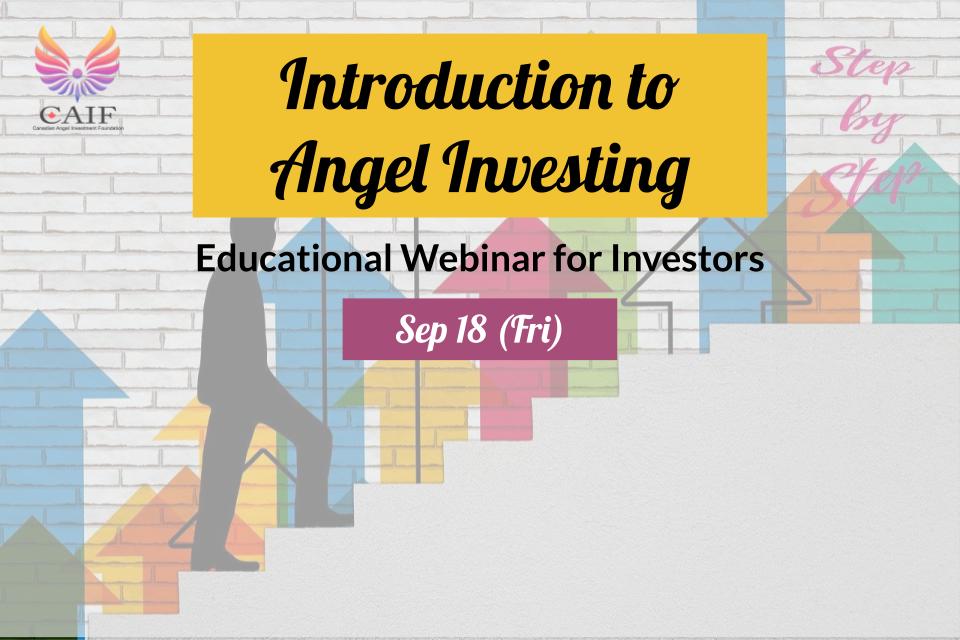
Summary For Introduction To Angel Investing
Part I: How to identify good startups (Presented by John Hamblin)
What should you know before investing?
Understanding the risks including your risk tolerance & appetite
Reality is different from your expectation, especially the length of time.
Confidence for your investing. Do not get pressured.
Understand the company and make a standard for them such as scorecards.
What elements should the scorecard involve?
1. Team (20 Points):
a) Founder’s passion and knowledge
b) Appropriately reward and punishment policy
c) Strengths and weakness of team
2. Pain and Solution (20 Points):
a) Effective problem-addressing system
b) Logical and scalable solution
c) How they improvement and development
3. The Market (20 Points)
a) Real market and clients of their product
b) Product pricing (Acceptable/Profitable/Scalable)
4. The Customers (20 Points):
a) Understand and meet Customers demand
b) Do they have a logical growth plan and customer acquisition?
5. Competition (10 Points):
a) How they identified their competition?
b) Advantages and disadvantages over competitor.
6. Business Plan (10 Points):
a) A viable and profitable business plan
b) Realistic costs and expense
c) Their current strategy and future trends
What other problems you may meet during investing?
- Founder’s marriages break up may influence the rights of propriety
- Key founders’ quit
- Key employees may leave
- Money runs out
Part II: Startups demo featuring (Presented by Chris Greenfield, James
Knupfer)
What is “ tiptap”?
- A small, standalone, fixed-amount touchless payment receiver that is
solving big world problems
What’s the benefit of “ tiptap”?
- Replace cash and coin
- Smallest, simplest, and fastest way to accept payments
- Creating new collection possibilities
What is “ Candidly”?
- A recruitment marketplace that connects employers to Software Developers
with pre-verified programming skills
What’s the advantage of “Candidly”?
- Multi-source algorithm analyzes responses to identify a candidate’s level of
knowledge - Accurate matching candidates to employers based on their profile.
- Improved candidate experience and expanded employment opportunities.
Presenter

John Hamblin
John has been involved in many startup investments and is part of 3 investments groups. As well, he has mentored and advised many early stage companies. In his talk, he will discuss key elements that he looks for in a startup and he will also review a few startups that he has been involved in and identify some common issues which often arise where steps can be taken in advance to minimize problems later as the company grows.” He will also be glad to answer any questions either during the session or by email after the session.
Other Posts
Transcript For SPV Investing
Chris: So you can see the question here. Leading companies in which of the following industries groups raise the most […]
Summary For SPV Investing
Part I: SPV Investing good for startups and investor by Jonathan Ip What is SPV Investing? Special purpose vehicle, also […]
Good Startup Scorecard
What elements should the scorecard involve for evaluating startups? 1. Team (20 Points): a) Founder’s passion and knowledge b) Appropriately […]
Introduction To Angel Investing Summary
Part I: How to identify good startups (Presented by John Hamblin) What should you know before investing? Understanding the […]
5 Ways to Gain Trust Online
Use Video Use of a multi sensory communication is critical online. The trend to video is not new or groundbreaking […]
7 Factors Affecting Valuations
1. Stage of your Business whether it is in an early-growth or matured stage 2. Business model must make sense […]
Hiring Part-Time CXOs 101 Summary
PART 1 – Fractional CTO (Presented by Jonathan Foo, TMQ Consultants) What does a startup CTO do? Responsible for the […]
Top 5 Pitching Techniques
Tip #1: Understand your target audience Tip #2: Start your pitch with a bold statement Tip #3: Your body language leaves the […]
